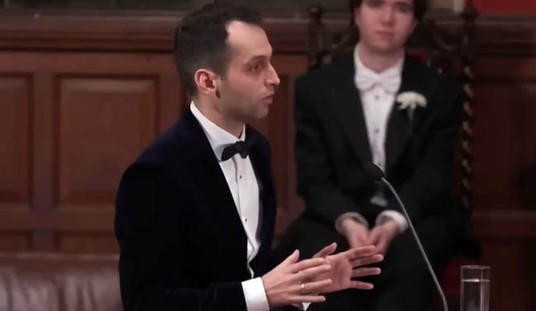The Kansas City Star seems a bit naive in asking this question. With HR3200 imposing mandates on all American residents to buy health insurance, how does the Obama administration plan to enforce it? After all, keeping track of the insurance status of more than 300 million seems a bit daunting to them:
If health care reform occurs, it is likely to include an individual mandate — a requirement that every American have health insurance.
In theory, health coverage would work something like the requirement that drivers buy auto insurance.
But everyone knows someone who has been hit by an uninsured, and sometimes even an unlicensed, driver.
So just how would an individual health insurance mandate work?
“I have difficulty understanding how we’d police the mandate,” said Truman Medical Center Chief Executive John Bluford. “It’s near impossible. People will game the system.”
Byron York has the answer, which is that HR3200 grants a large increase in power to one of the least-loved agencies in the American government:
But if the plan envisioned by President Barack Obama and Congressional Democrats is enacted, the primary federal bureaucracy responsible for implementing and enforcing national health care will be an old and familiar one: the Internal Revenue Service. Under the Democrats’ health care proposals, the already powerful — and already feared — IRS would wield even more power and extend its reach even farther into the lives of ordinary Americans, and the presidentially-appointed head of the new health care bureaucracy would have access to confidential IRS information about millions of individual taxpayers.
In short, health care reform, as currently envisioned by Democratic leaders, would be built on the foundation of an expanded and more intrusive IRS.
Under the various proposals now on the table, the IRS would become the main agency for determining who has an “acceptable” health insurance plan; for finding and punishing those who don’t have such a plan; for subsidizing individual health insurance costs through the issuance of a tax credits; and for enforcing the rules on those who attempt to opt out, abuse, or game the system. A substantial portion of H.R. 3200, the House health care bill, is devoted to amending the Internal Revenue Code of 1986 in order to give the IRS the authority to perform these new duties.
There is another aspect to this that has thus far escaped much discussion. The IRS will become the authority on “acceptable” insurance policies, which goes far beyond the agency’s expertise and mandate. What makes a tax-collection agency an expert on health insurance? Granted, they have as much expertise as 535 elected officials who can’t be bothered to read bills before voting on them, but that’s a pretty low bar to clear. The IRS exists to collect taxes, not to analyze health-care coverage. The government-controlled “exchanges” are bad enough as a licensing authority; why have the IRS duplicate it?
That leads to a more significant problem. When people worry about facing back-breaking fines for choosing insurance considered inadequate by the IRS, they will move to safer plans. That makes it difficult for insurers to innovate in ways that could be beneficial to both consumers and the health-care system’s efforts to control costs. The IRS will provide additional pressure on people to choose the “public plan” instead of risking IRS ire on private insurance, which is just another way to push private insurers out and push single-payer as the de facto result.
That is the result of having the most coercive of all government agencies in charge of enforcing the individual mandates — for which Congress has no authority to impose in the first place. The only way anyone can support ObamaCare is to love the IRS, which will become a much more intrusive presence in American lives under this plan.









Join the conversation as a VIP Member